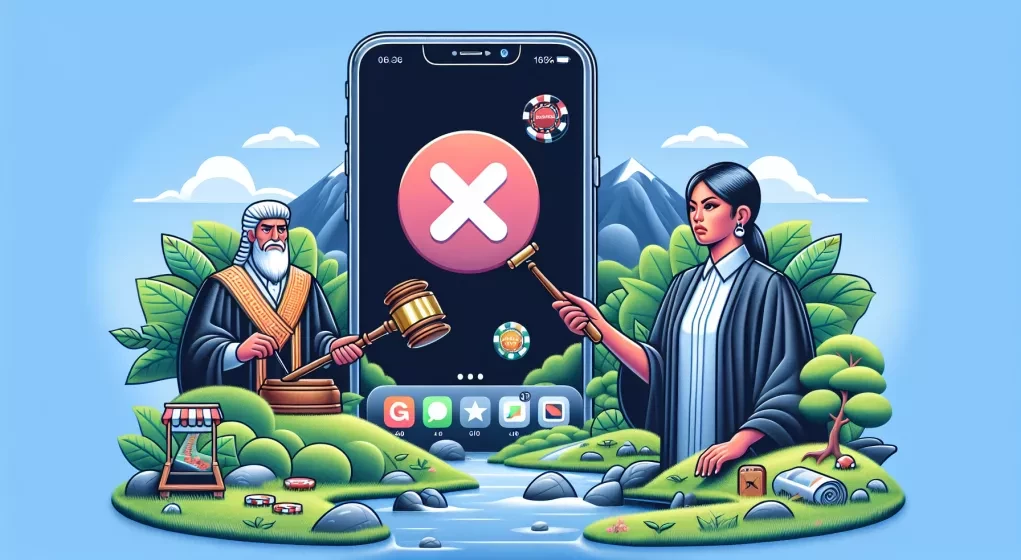Beneath the incessant digital clatter of virtual slot machines and the neon flicker of simulated card tables, a monumental legal showdown has unfolded in the verdant expanses of Washington state. It was here that a digital tempest brewed over the seemingly innocent pastime of social casino apps. But let not the playful veneer of High 5 Casino and High 5 Vegas deceive; for a federal judge has stamped these realms of pixelated merriment with the mark of illegality.
The gavel sounded on an ordinary June 11th as the Western Washington District Court’s Judge Tiffany Cartwright rendered a verdict fraught with repercussions. High 5 Games, hailing from the distant concrete jungle of New York, came to bear the potential brunt of millions in damages. Like a tempestuous sea turning against the emboldened mariner, Washington’s Recovery of Money Lost at Gambling Act (RMLGA) could yet demand its pound of flesh in real currency, not the fanciful play chips that fuel these controversial digital domains.
The plaintiff, a former virtual gambler by the name of Rick Larsen, presented a compelling case, refracted through the lens of Washington state’s rigorous Consumer Protection fwAct. Larsen, who himself sailed the turbulent seas of High 5 Casino and High 5 Vegas, had embarked on a judicial quest back in 2018, roping the fate of High 5 Games with a class-action lasso. Virtual coins, tokens of continued digital engagement, come without cost at the journey’s onset. However, upon the depletion of this gratis cache, players like Larsen found themselves forking over real-world silver to replenish their virtual coffers, to the cumulative tune of $21.6 million laid bare by court-subpoenaed records.
Yet, the precise calculation of damages remains as enigmatic as the algorithms that keep players tethered to their brightly lit screens. A jury, beckoned forth at a later date, shall sift through the digital detritus to fix a price upon the virtual escapades of the app’s users.
Judge Cartwright’s decree leans heavily upon a legal linchpin set in place by the Ninth Circuit’s Judge Milan D. Smith. It was he who, in March 2018, ensnared virtual play chips within the legal definition of “something of value,”—a critical designation beneath the steel-grey skies of Washington law. For gambling, as defined by the state, hinges on the risking of value upon the unpredictable sway of chance or future contingency, beyond one’s domain of control, with the anticipation of receiving value should fortune’s favor shine.
Washington’s jurisprudence stands a vigilant sentinel compared to other states where virtual chips glide beneath the radar of legal scrutiny. And as history has recorded in the Big Fish case—where plaintiffs netted themselves a kingly sum of $155 million—it is the nature of High 5’s virtual currency, tracing the footsteps of its ill-fated predecessor, that propels High 5 Games towards an uncertain future, etched with the possibility of substantial restitution.






